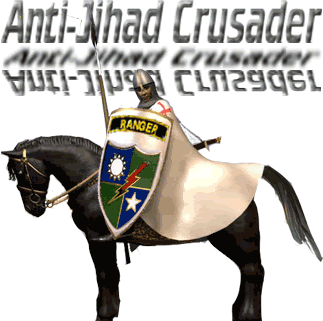Hezbollah's 'Victory'
Hezbollah's 'Victory'
By Charles Krauthammer"We did not think, even 1 percent, that the capture would lead to a war at this time and of this magnitude. You ask me, if I had known on July 11 ... that the operation would lead to such a war, would I do it? I say no, absolutely not.'' -- Hasan Nasrallah, Hezbollah leader, Aug. 27 WASHINGTON -- So much for the "strategic and historic victory'' Nasrallah had claimed less than two weeks earlier. What real victor declares that, had he known, he would not have started the war that ended in triumph?
Nasrallah's admission, vastly underplayed in the West, makes clear what the Lebanese already knew. Hezbollah may have won the propaganda war, but on the ground it lost. Badly.
True, under the inept and indecisive leadership of Ehud Olmert, Israel did miss the opportunity to militarily destroy Hezbollah and make it a non-factor in Israel's security, Lebanon's politics and Iran's foreign policy. Nonetheless, Hezbollah was seriously hurt. It lost hundreds of its best fighters. A deeply entrenched infrastructure on Israel's border is in ruins. The great hero has had to go so deep into hiding that Nasrallah has been called "the underground mullah.''
Most importantly, Hezbollah's political gains within Lebanon during the war have proved illusory. As the dust settles, the Lebanese are furious at Hezbollah for provoking a war that brought them nothing but devastation -- and then crowing about victory amid the ruins.
The Western press was once again taken in by the mystique of the "Arab street.'' The mob came out to cheer Hezbollah for raining rockets on Israel -- surprise! -- and the Arab governments that had initially criticized Hezbollah went conveniently silent. Now that the mob has gone home, Hezbollah is under renewed attack -- in newspapers in Saudi Arabia, Kuwait and Egypt, as well as by many Lebanese, including influential Shiite academics and clan leaders. The Arabs know where their interests lie. And they do not lie with a Shiite militia that fights for Iran.
Even before the devastation, Hezbollah in the last election garnered only about 20 percent of vote, hardly a mandate. Hezbollah has guns, however, and that is the source of its power. But now even that is threatened. Hence Nasrallah's admission. He knows that Lebanon, however weak its army, has a deep desire to disarm him and that the arrival of Europeans in force, however weak their mandate, will make impossible the rebuilding of the vast Maginot Line he spent six years constructing.
Which is why the expected Round Two will, in fact, not happen. Hezbollah is in no position, either militarily or politically, for another round. Nasrallah's admission that the war was a mistake is an implicit pledge not to repeat it, lest he be completely finished as a Lebanese political figure.




0 Comments:
Post a Comment
<< Home